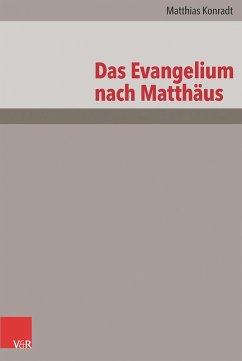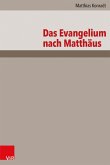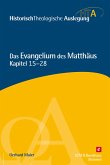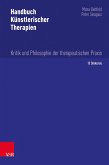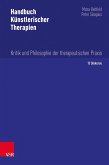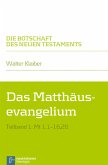In this very concise compendium Matthias Konradt presents a theologically oriented commentary of the first Gospel in the Bible. This is an ideal commentary for preparing sermons and for work in the parish. In this very concise compendium Matthias Konradt presents a theologically oriented commentary of the first Gospel in the Bible. The Introduction consists of 20 pages that include the most important pieces of information concerning recent research on the literary background, on the historical origins, on the historical context and on the theological peculiarities of the Gospel of Matthew. An ideal commentary for preparing sermons and for doing parish work. Matthias Konradt ist Professor für Neues Testament an der Universität Heidelberg.
Dieser Download kann aus rechtlichen Gründen nur mit Rechnungsadresse in A, B, BG, CY, CZ, D, DK, EW, E, FIN, F, GR, H, IRL, I, LT, L, LR, M, NL, PL, P, R, S, SLO, SK ausgeliefert werden.
Hinweis: Dieser Artikel kann nur an eine deutsche Lieferadresse ausgeliefert werden.

